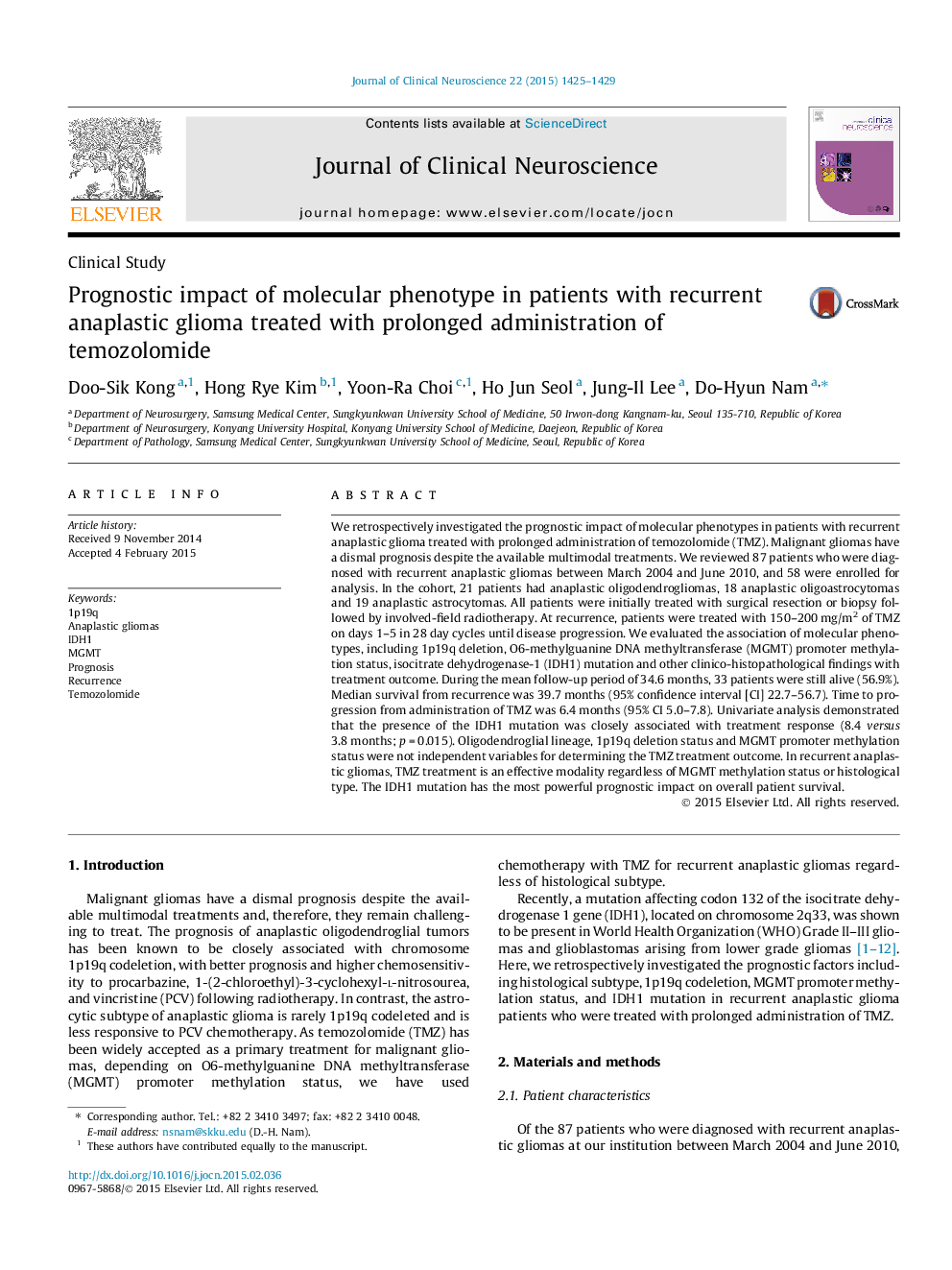| کد مقاله | کد نشریه | سال انتشار | مقاله انگلیسی | نسخه تمام متن |
|---|---|---|---|---|
| 3058906 | 1187416 | 2015 | 5 صفحه PDF | دانلود رایگان |
We retrospectively investigated the prognostic impact of molecular phenotypes in patients with recurrent anaplastic glioma treated with prolonged administration of temozolomide (TMZ). Malignant gliomas have a dismal prognosis despite the available multimodal treatments. We reviewed 87 patients who were diagnosed with recurrent anaplastic gliomas between March 2004 and June 2010, and 58 were enrolled for analysis. In the cohort, 21 patients had anaplastic oligodendrogliomas, 18 anaplastic oligoastrocytomas and 19 anaplastic astrocytomas. All patients were initially treated with surgical resection or biopsy followed by involved-field radiotherapy. At recurrence, patients were treated with 150–200 mg/m2 of TMZ on days 1–5 in 28 day cycles until disease progression. We evaluated the association of molecular phenotypes, including 1p19q deletion, O6-methylguanine DNA methyltransferase (MGMT) promoter methylation status, isocitrate dehydrogenase-1 (IDH1) mutation and other clinico-histopathological findings with treatment outcome. During the mean follow-up period of 34.6 months, 33 patients were still alive (56.9%). Median survival from recurrence was 39.7 months (95% confidence interval [CI] 22.7–56.7). Time to progression from administration of TMZ was 6.4 months (95% CI 5.0–7.8). Univariate analysis demonstrated that the presence of the IDH1 mutation was closely associated with treatment response (8.4 versus 3.8 months; p = 0.015). Oligodendroglial lineage, 1p19q deletion status and MGMT promoter methylation status were not independent variables for determining the TMZ treatment outcome. In recurrent anaplastic gliomas, TMZ treatment is an effective modality regardless of MGMT methylation status or histological type. The IDH1 mutation has the most powerful prognostic impact on overall patient survival.
Journal: Journal of Clinical Neuroscience - Volume 22, Issue 9, September 2015, Pages 1425–1429
